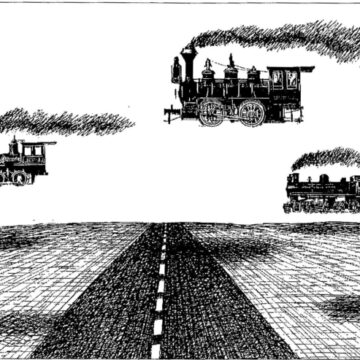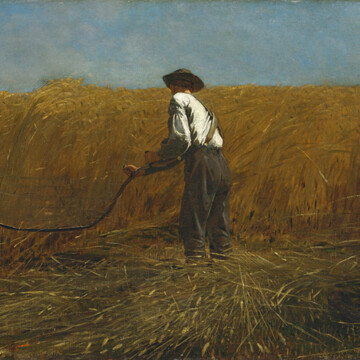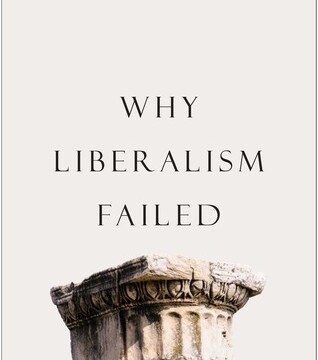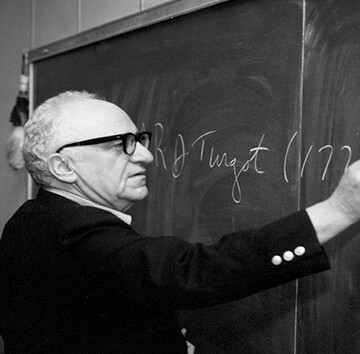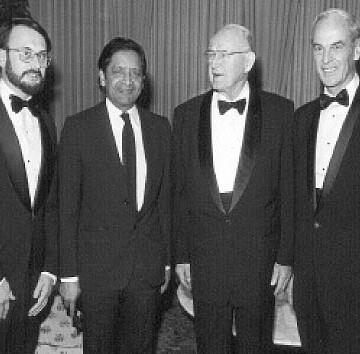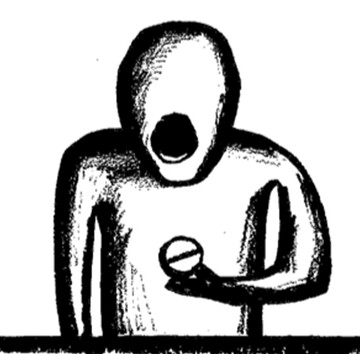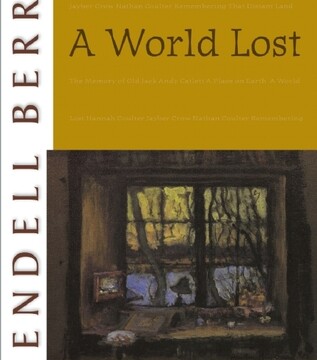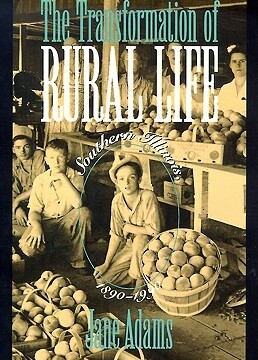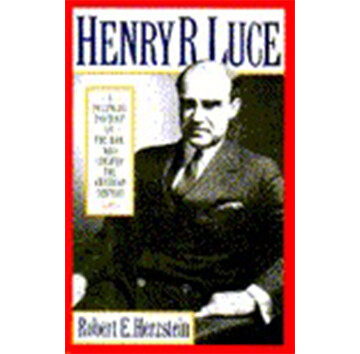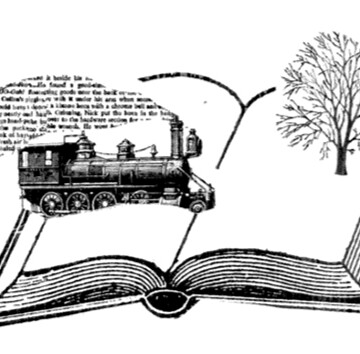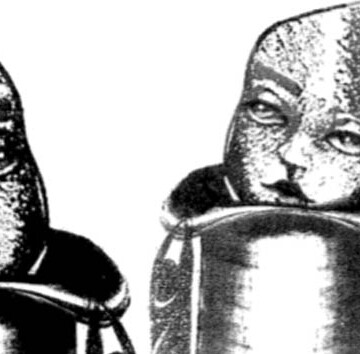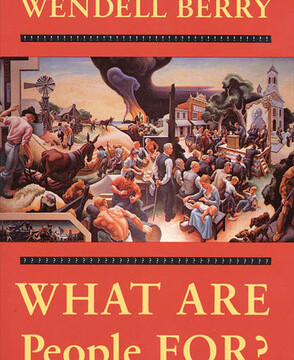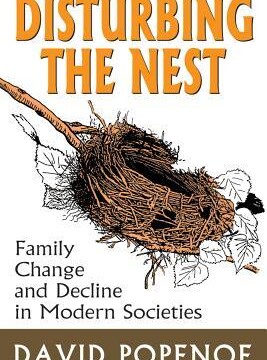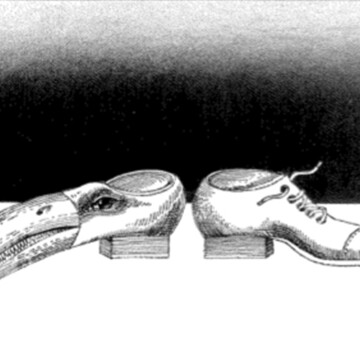The distinctive regional "America," composed of Midwestern German and Scandinavian enclaves, lasted barely four decades, dying as a coherent entity sometime in the early 1950s.
Author: Allan C. Carlson (Allan C. Carlson)
The Case for Christian Distributism
Christian distributism celebrates the small and the human. It rests on strong home economies and demands the widest possible distribution and ownership of productive property. It favors worker ownership through cooperatives of necessarily larger machines and enterprises. It seeks and reinforces local communities, bound together by ties of kinship, faith, and trade. It welcomes lifelong,...
The Truth About Hungary
I met Hungarian Prime Minister Viktor Orbàn in May of last year. With a few others, we shared breakfast before the opening session of the second Budapest Demographic Forum. He was every bit the “footballer” I had been told to expect. Of modest stature, he moved—even at age 54—with an assured athleticism. This event was...
The Last Ideology
“Liberalism has failed,” writes University of Notre Dame political-science professor Patrick Deneen in his new book with a related title. “Nearly every one of the promises . . . made by the architects and creators of liberalism has been shattered,” he adds. Liberalism has “generated pathologies” that have corrupted the nation’s economy and culture and...
The Stork Theory
From the October 2016 issue of Chronicles. Business Insider recently reported “a mind-blowing demographic shift” that is about to occur. Considering the globe’s whole human population, the number of adults age 65 and older will in a few years be greater than the number of children under the age of 5. This unprecedented change should...
Regional Anthem
A century ago, the American Midwest was in the ascendant, widely acknowledged as the nation’s vital Heartland, a place characterized by a morally strong and independent populace, a relatively egalitarian distribution of wealth in land (the classic 160 acre family farm), and true democratic values. The print media of the day celebrated its distinctive farm...
Too Steep a Price: Why the Liberal Family Died
Over half a century ago, the family system advocated by John Locke and modeled on Lockean liberalism seemed to have triumphed completely in the United States, in Western Europe, and globally. In that model, marriage is viewed as a contract between equals, in which fathers are allowed to take on the “soft patriarchal” roles of...
A Conservative Tax Code
Few American objects attract more scorn than the federal Internal Revenue Code. When initially drafted in 1914, it contained 11,400 words, about the length of a long magazine article. Today, the Code weighs in at about four million words, with another six million in supportive regulations. Its garbled syntax is easily ridiculed. Tax attorney Joseph...
A City on a Hill—With Transgender Toilets?
A little over 30 years ago, I was attending a conference in a faraway place when disaster struck. I became sick, really sick—the sort of illness where one can barely crawl out of bed, let alone attend conference sessions. Lacking care of any sort, I lay in bed for two days, waiting for some semblance...
A Complete Man: Remembering Terry Kohler
During the late 1950’s, Terry J. Kohler was a jet pilot with the U.S. Air Force, flying T-33 fighters and B-47 bombers with the Strategic Air Command. Like most others of that tribe whom I have met, the experience gave him an almost startling directness of manner. On meeting him, you quickly became aware of...
The True Source
Phyllis Schlafly, in the spring of 1973, squared off in debate at Illinois State University against archfeminist Betty Friedan. The subject was the Equal Rights Amendment to the Constitution, at the time just a few states short of ratification. Those were the years when feminists went out of their way to look bad: frumpy clothes;...
The Stork Theory
Business Insider recently reported “a mind-blowing demographic shift” that is about to occur. Considering the globe’s whole human population, the number of adults age 65 and older will in a few years be greater than the number of children under the age of 5. This unprecedented change should then accelerate: By 2050, old people are...
John Addison Howard, 1921-2015: A Remembrance
John Howard, founder of The Rockford Institute (publisher of Chronicles: A Magazine of American Culture), passed from this world on August 7, 2015, a week shy of his 94th birthday. He is survived by his wife, four children, and nine grandchildren. A memorial service in his honor was held on August 29 at Westminster Presbyterian...
Euthanasia for Excellence
On April 10 of last year, the European Patent Office quietly awarded a patent to Michigan State University (MSU) for “euthanasia solutions which use the anesthetic gammahydroxy-butramide (embutramide) as a basis for formulating the composition.” On the surface, the event was not out of the ordinary. In the abstract of the public document, the new...
Eternity Gained
In his new novel Wendell Berry returns to the time and the characters found in his earlier and more complex work, A Place on Earth. The atmosphere is familiar: a community subtly unsettled by the distant events of World War II; families still rooted in place through bonds to the land and to each other;...
American Gothic
“Do not the seas and the mountains and the prairies and the plains in some manner and to some extent transform men into their own likeness?” —Cyrenus Cole The America First cause of 1959-41 finds a powerful, if unusual and indirect, affirmation in E. Bradford Burns’ Kinship with the Land: Regionalist...
Henry Regnery, R.I.P.
He died on June 18, his devoted wife of six decades, Eleanor, at his side. Soft-spoken, humble, ever polite and generous, Henry was also a man of indomitable courage. In an era of accelerating centralization in the book trade, he launched the Henry Regnery Company in 1947 as an independent publishing house. From the beginning,...
Lone Star Rising
The development of a uniquely Texan conservatism has occurred over the last quarter century. A central figure in this transition was the late M.E. Bradford, professor of English at the University of Dallas, literary essayist in the tradition of the Vanderbilt Agrarians, and prominent critic of the political Lincoln. In 1972, Bradford rallied to the...
Broad Political Views
Wendell Berry’s new essay collection, Another Turn of the Crank, gives definition to broad political views that the author has previously left obscure. Regarding foreign trade, for example, he asks: “How can any nation or region justify the destruction of a local productive capacity for the sake of foreign trade?” Berry indicts both the liberals’...
The Midwestern Identity
The distinctive regional "America," composed of Midwestern German and Scandinavian enclaves, lasted barely four decades, dying as a coherent entity sometime in the early 1950s.
The State of Union
“I grew up a few miles from the X county this book deals with,” anthropologist Jane Adams writes in her account of rural Union County, Illinois. “My family’s farm, although dating only to the early 1940’s, is now essentially abandoned, the community emptied.” Her book describes this loss, serving both as indirect autobiography and scholarly...
The Missionary’s Son
Henry Luce both created and dominated a new form of national journalism between 1930 and 1960. Founder and editor-in-chief of Time, Life, and Fortune, he is best remembered for his 1941 Life essay “The American Century,” a robust call for the United States to assume world power status. Robert Herzstein, Carolina Research Professor of History...
Daddies and the Swedish State
The Mercy Killing of Socialism, launched so hopefully throughout Central and Eastern Europe in 1991, has failed. Most visibly, Polish voters returned the communists to parliamentary control in 1993, while Russia swung toward a version of National Socialism. Even in the smaller but symbolically important nation of Sweden, the “conservative revolt” sparked by right-wing election...
Louis Bromfield’s America
Malabar Farm drew a large crowd the summer day I was there, mostly busloads of the elderly on excursion from the “senior centers” of Ohio. They came to see Louis Bromfield’s legacy—the once famous agricultural experiment that is now a state park. Most of their interest centered on the tour of Bromfield’s “Big House,” his...
The Nationalism of Jan Myrdal
Jan Myrdal, the brooding bad boy of Swedish letters, agreed to meet with me on a Sunday afternoon, at his home near the village of Mariefred. I went to ask this iconoclastic celebrant of China’s Cultural Revolution (Report From a Chinese Village), merciless public critic of his famous parents Gunnar and Alva (Childhood), and author...
Uncle Sam’s Child
The recent election season opened with hopes high for an intelligent debate of family issues. The 1991 Final Report of the National Commission on Children (on which I served) seemed to have broken the moral and political logjams that had long prevented this dialogue. The commissioners had decided, after extensive argument, to avoid the mistake...
The Case for Proportional Representation
Congressional reapportionment, an orgy of partisan revenge and blatant self-interest mandated every ten years by our Constitution, proved particularly ugly in 1992. In Tennessee, Texas, and other states, judges required minority-dominated districts be carved out to insure representation to blacks and Hispanics. The results left even Governor Gerry turning over in his grave. New electoral...
Rediscovered Family
The Bush administration has rediscovered the family. A year ago, White House minions strove to torpedo the Final Report of the National Commission on Children, worried that its recommendation of tax relief for families with children might upset the hallowed “budget agreement” with Congress. Today, with one eye on the embers of Los Angeles and...
The Ants and Elephants of Swedish Politics
In February, I returned to Sweden after a 15-year absence, and discovered a very different land. In 1976, Americans were viewed with suspicion. We carried the immediate legacy of the Vietnam imbroglio and a vague reputation as “protofascists.” These were the heady early days of Prime Minister Olaf Palme. The Swedes were, as always, polite,...
Confessions of a Housing Policy Junkie
I spent the 1970’s looking for a social policy agenda I could love. I thought I had found one in federal housing subsidies. The image of the free family on its homestead powerfully appealed to my imagination. I saw the suburban home as heir to the Jeffersonian agrarian spirit, its bond to property stimulating the...
An Unexpected Eruption
Sweden experienced an unexpected eruption of right-wing populism this autumn. While news accounts focused on the electoral defeat of the ruling Social Democrats and the victory of a center-right coalition, the bigger story was the success of two new political parties: one telling the Swedes, “be good”; the other, “be happy.” The left suffered across...
Motels and Filling Stations
Rural and small town America is nearly dead. A distinctive culture rooted in family farms, weakening since 1900 and seriously diseased since 1960, emerged from the 1980’s in a terminal state. In Iowa alone, the last ten years saw a net out-migration of 280,000 people, a full tenth of the state’s population, with most of...
Fading Into Arabian Nights
As the shock of American cluster bombs and the distinctive rumble of Abrams tanks fade from the Arabian nights, we world-citizens must begin to sort through the events of the last eight months. Many lessons could be drawn. Allow me to suggest two. First, it seemed clear by the sixth week of open combat that...
New International Order
The GATT Trade talks in Europe collapsed and surprised advocates of the new international order. American officials tagged blame on the nations of Western Europe and Japan for their intransigent unwillingness to dismantle national farm programs sheltering indigenous rural communities. Our negotiators blasted the irrational protection of obsolete jobs and an incomprehensible subsidy to undercapitalized,...
O Canada
If the fuss over Canada’s Meech Lake Accords has you confused, William Gairdner’s The Trouble With Canada is a fine place to turn to. The book is a solid personal jeremiad against the egalitarian evils taking root in Canada, and the spineless politicians who make it possible. Gairdner fits the conflict over Quebec into this...
Engines of Decline
Disturbing the Nest is among the finest and most readable works of comparative sociology published in the last ten years, and the most effective critique of the Swedish welfare state now in print. David Poponoe’s careful, fully documented, and gently devastating portrait of modern Sweden surprises the reader, in part, because Poponoe is himself a...
Leviathan’s Children
Washington apparatchiks have spent the last two decades in a frustrating search for a theme that could carry the sagging American welfare state. There are signs now that they have finally identified a, two-headed creature slouching toward Bethlehem-on-the-Potomac to be born: “families” and “children.” Jimmy Carter had a vague sense of the political power behind...
An Exhausting Criminal Trial
Peggy Buckey’s acquittal and the acquittal of her son Raymond Buckey on 52 counts of child molestation brought an end to a highly publicized and exhausting criminal trial. Less noticed, perhaps, were postmortems on the case by jury members, who described the excesses and strange ironies of a governmental crusade “to save our children.” The...
The Anti-Drug Crusade
The Anti-Drug Crusade contains the common hype along with always-commendable pledges to crack down on drug criminals and introduce “zero tolerance” for users. Nonetheless, President Bush’s war on drugs can only fail, for it insists on attacking the symptoms of the problem rather than the real disease itself. Social research on the use of illegal...
Day Care and Illegal Drugs
Day care and illegal drugs are hot political issues. Yet there has been little public discussion of the relationship between changing family patterns and the use of illegal drugs. Considerable data suggests a close connection between the two. Indeed, the decline of the traditional family seems to parallel the increase in the use of illegal...
Charity Begins At Home
Alice Roosevelt Longworth, when she was asked her opinion of her cousin Franklin D. Roosevelt, described him as “One third mush and two thirds Eleanor.” The same could be said of FDR’s creation, the welfare state: one third mush; two thirds Eleanor. The New Deal was revolutionary in its scope, and like every social revolution...
First Mass Mailing
“Understanding AIDS,” the U.S. Surgeon General’s brochure on “public enemy number one,” has been called the first mass mailing of a federal policy message to every American household. In fact, an earlier administration attempted to meet a very different public danger—nuclear attack—with a similar mail campaign. Comparison of the social assumptions found in each document...
Heroes Wanted
In that bloated morass called American higher education, only a few institutions remain that are committed to the classical virtues and to learning as an induction into Western civilization. Hillsdale College is counted among that number. Credit for holding that course goes to George Roche, who as the institution’s president has labored to defend the...
The First Green International
Peasant agrarianism, some say, was Central Europe’s “missed opportunity” for independent political development in this century. Such arguments have been heard particularly since 1947, as the refugees from Marxist Europe organized their International Peasant Union and met every other year tu talk about what might have been. The case is compelling, to a degree. For...
Old Attitudes Die Hard
Gunnai Myrdal came as the featured speaker at the annual meeting of the Lutheran Council in the USA—yet another public atheist called to give moral guidance to yet another demoralized band of American religious leaders. I saw his presence as a godsend. In a sense, he was to be my dissertation project. The chance to...
Back to Barbarism
Much of the bioregional vision should appeal to conservative sentiments. As the pitiful remnant of America’s agrarian culture again falls victim to drought and depression, the bioregionalists call for a return to the land, a reconstruction of self-sufficient farm life, and a reverence toward the soil as the organic bond of human generations. As Ortega...
The Gelded Age
“If the Model Boy was in either of these Sunday schools, I did not see him.” —Mark Twain What do men want? In the gloried 1950’s, Sports Afield and Rod and Gun exemplified a male ethos resting on the quest for game by the primeval hunting band. With Playboy, Hugh Hefner moved the American male...
Small-Town Schizophrenia
“I see the rural virtues leave the land. “ —Oliver Goldsmith Garrison Keillor, the writer, has finally made it big. Five years ago a regional cult figure and occasional contributor to the New Yorker, Keillor has now vaulted on to the cover of Time and to the top of the New...
Letter From Minnesota
American and British negotiators of the Treaty of Paris, attempting to set the northwestern boundary of the new United States, agreed on a line following Rainy River “to the Lake of the Woods, thence through said lake to the most northwestern part thereof.” Another 60 years would pass before an accurate map, astronomical calculations, and...
Life, Interpreted Lucely
” . . . where the pictures for the page atone.” —Alexander Pope No contemporary could write promotion copy quite like Henry Luce. His 1936 prospectus for a new magazine featuring photographs, tentatively called The Show-Book of the World, still has few equals: To see life; to see the world; to eyewitness great events; to...
